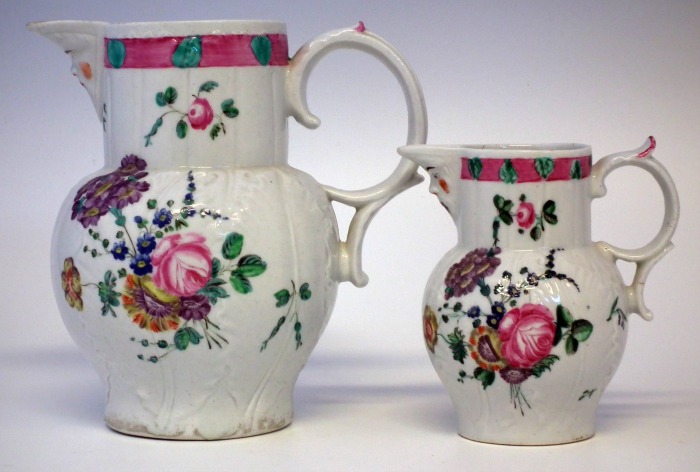
Nantwich auctioneers Peter Wilson will sell a Barry Lomax Collection of Early English Porcelain at their next auction.
The February 18 fine art sale is expected to attract international attention.
The historically important collection of more than 500 pieces represents one man’s devotion to the subject.
Most of the early English porcelain factories are represented in the sale, with strong focus on Bow, Lowestoft, Caughley, Coalport, the Liverpool factories, and Newhall and its imitators.
It includes a group of Baddeley-Littler pieces believed to be the largest ever to have been offered in a single sale.
One of the rarest classes of porcelain found in English ceramics, this Staffordshire factory was located in Shelton, between Hanley and Stoke-on-Trent.
It was owned by Ralph Baddeley and began producing porcelain around 1777 with William Littler working in assistance.
The most valuable among 17 lots is expected to comprise two large mask jugs (pictured) formerly in the Geoffrey Godden Collection, together estimated at £700-1,000.
Barry Lomax was born in 1948 in Blackpool and settled in Chorley.
He worked in IT before setting up his own business buying for pleasure and to further his research.
His aim was to identify pieces from little known factories and to discover and learn about previously unknown manufacturers.
The sale of Barry’s collection follows his death in 2013 aged just 65.
The collection is expected to raise a total of £15,000, and will be offered as part of a larger fine sale comprising 570 lots.
Viewing prior to the auction at Peter Wilson’s Victoria Gallery in Market Street, Nantwich, is Sunday February 14 from 2-4pm; Monday and Tuesday February 15-16, 10am-5pm; Wednesday February 17, 10am-4pm and on the morning of the sale from 9am-10am.
Contact auctioneer 01270 623878 or [email protected]





















Recent Comments